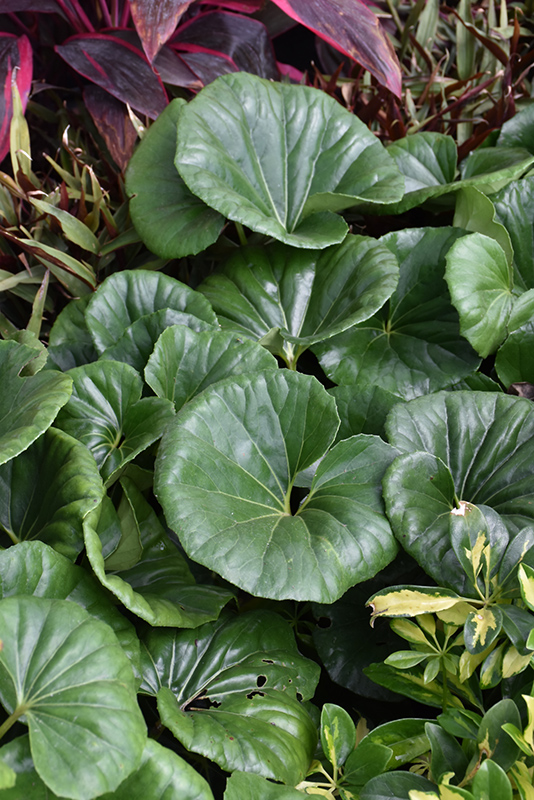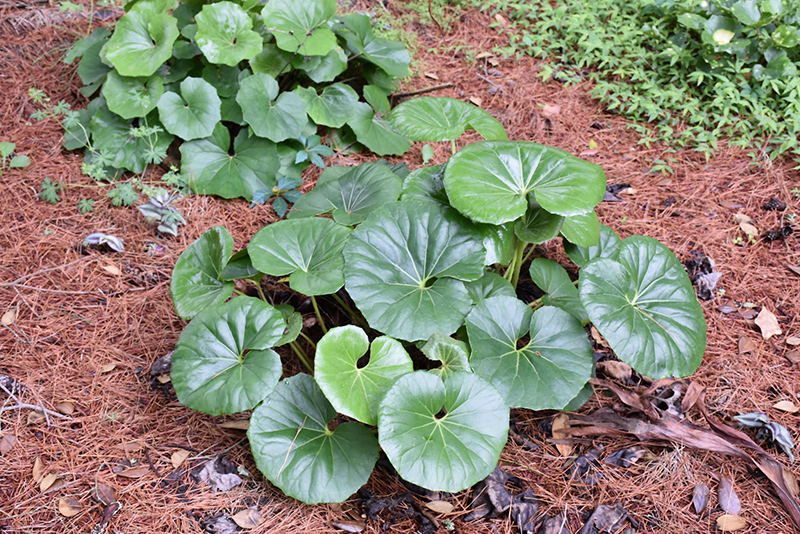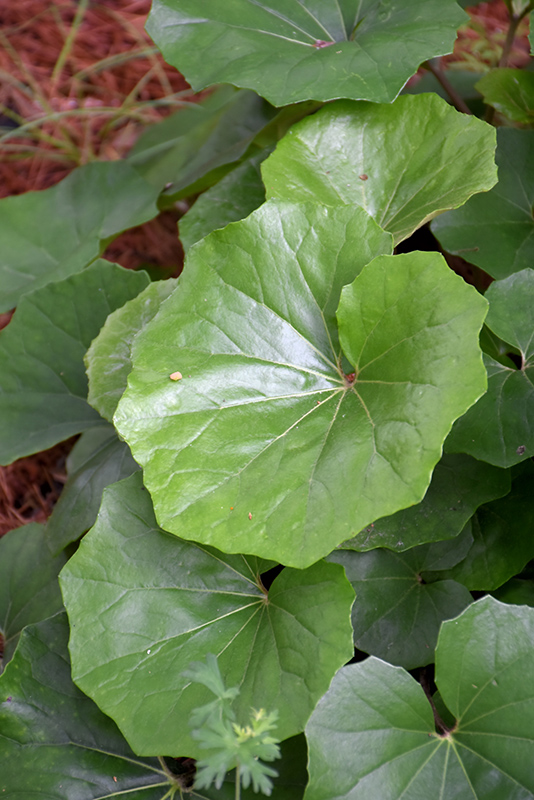$-$BeginNetPS$-$
$-$EndNetPS$-$
Giant Leopard Plant
Ligularia tussilaginea 'Gigantea'
Plant Height: 12 inches
Flower Height: 24 inches
Spread: 3 feet
Sunlight:
![]()
![]()
Hardiness Zone: 7b
Other Names: Rayflower, Farfugium japonicum Giganteum
Description:
This shade plant has fabulous glossy leaves that add coarse texture to the garden; perfect for moist shade; airy sprays of yellow flowers contrast with the bold foliage
Ornamental Features
Giant Leopard Plant features airy spikes of yellow flowers rising above the foliage from late summer to early fall. Its large glossy round leaves remain dark green in color throughout the season.
Landscape Attributes
Giant Leopard Plant is an herbaceous perennial with tall flower stalks held atop a low mound of foliage. Its wonderfully bold, coarse texture can be very effective in a balanced garden composition.
This is a relatively low maintenance plant, and is best cleaned up in early spring before it resumes active growth for the season. Deer don't particularly care for this plant and will usually leave it alone in favor of tastier treats. It has no significant negative characteristics.
Giant Leopard Plant is recommended for the following landscape applications;
- Mass Planting
- Border Edging
- General Garden Use
- Groundcover
- Naturalizing And Woodland Gardens
- Container Planting
- Bog Gardens
Planting & Growing
Giant Leopard Plant will grow to be about 12 inches tall at maturity extending to 24 inches tall with the flowers, with a spread of 3 feet. Its foliage tends to remain dense right to the ground, not requiring facer plants in front. It grows at a medium rate, and under ideal conditions can be expected to live for approximately 10 years. As an herbaceous perennial, this plant will usually die back to the crown each winter, and will regrow from the base each spring. Be careful not to disturb the crown in late winter when it may not be readily seen!
This plant does best in partial shade to shade. It prefers to grow in moist to wet soil, and will even tolerate some standing water. It is not particular as to soil pH, but grows best in rich soils. It is somewhat tolerant of urban pollution. This is a selected variety of a species not originally from North America. It can be propagated by division; however, as a cultivated variety, be aware that it may be subject to certain restrictions or prohibitions on propagation.
Giant Leopard Plant is a fine choice for the garden, but it is also a good selection for planting in outdoor pots and containers. With its upright habit of growth, it is best suited for use as a 'thriller' in the 'spiller-thriller-filler' container combination; plant it near the center of the pot, surrounded by smaller plants and those that spill over the edges. Note that when growing plants in outdoor containers and baskets, they may require more frequent waterings than they would in the yard or garden.



